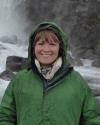Our Course Zoom Link:
Topic: ENGL 200C
Time: This is a recurring meeting
Join Zoom Meeting
https://washington.zoom.us/j/97442635028
Meeting ID: 974 4263 5028
ENGL 200C: Environmental Storytelling in the Anthropocene
M-Th 2:30-3:20 on Zoom
Instructor: Jenny Haden
Email: jlhaden@uw.edu
Office Hours: T 3:30-4:30 on Canvas chat
Or email me to schedule a Zoom appointment
Overview:
Climate change is not fiction, but some of today’s most compelling writing about it is.
Siobhan Adcock
[T]he crisis [of climate change] demands a form of literary expression that lifts it out of the realm of intellectual knowing and lodges it deep in readers’ bodies.
Katy Waldman
This course will examine environmental storytelling: how literature, film, art, and more help us form connections with and understand our planet, its occupants, and its greatest threat, climate change. We will encounter stories of doom and stories of hope, both of which reflect and engender the complex emotional experience of climate change. Engaging with this literature in its various forms will help us consider such questions as:
...What is the value of environmental storytelling? What kind of impact(s) can it create?
...What does it mean to take emotions (fear, confusion, anger, amusement) into account as a student and analyst of literature?
...What kind of relationship do various forms of environmental storytelling have with our reality?
...In what forms (short stories, novels, films, etc.) is environmental storytelling the most effective? Enjoyable? Convincing? Useful?
Please note that since this course fulfills the W requirement, you should expect to do lots of writing (in the form of in-class exercises and formal, graded papers). Class time will be student- centered and discussion-based, so it is very important that you come to class prepared to engage with challenging texts and topics.
Note: Find the rest of the syllabus under "Files."
